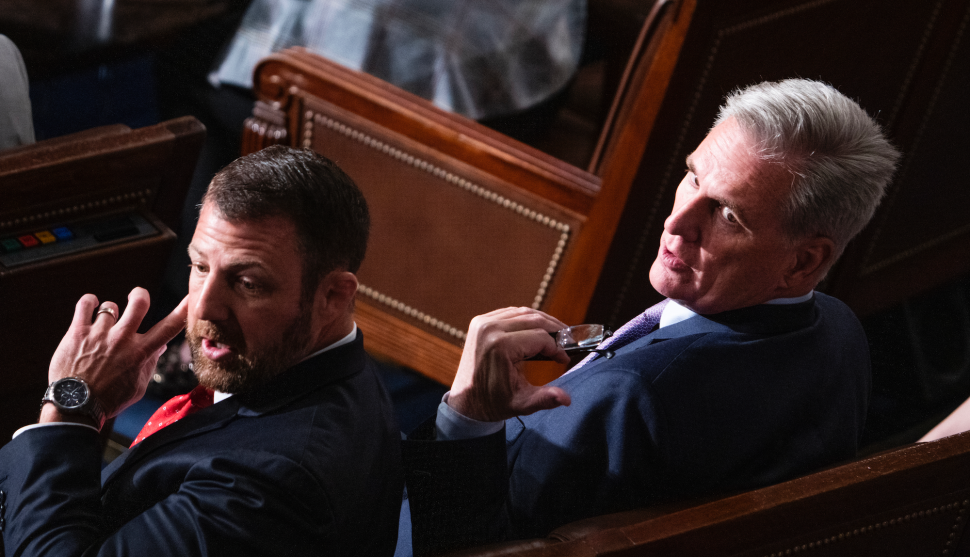
Charles Dharapak/AP
With Republican Speaker of the House Mike Johnson struggling to hold onto the gavel in the face of eternal rebellion from some of his party’s most intransigent far-right members, Politico thought it would be a good idea to call up former Republican Speaker of the House Newt Gingrich to ask him about the situation. And I agree, it was a good idea. Not because Gingrich, who served as speaker for four years during the Clinton administration, has a ton of great advice himself, but because in the process of trying to offer some anyway, he offered up the cleanest distillation of his own legacy.
Here it is:
Do you ever look at the House and think, “If I was speaker, I could get these knuckleheads in line?”
You can’t keep them in line, because the technology’s changed. They have the ability to make noise, they have the ability to go on television, and they have an ability to use the internet to raise money from [people] who only know who they are because they saw them on television, so what do they care?
That’s a decent analysis about a group of people that, as I’ve written previously, increasingly have more in common with YouTube and TikTok content creators than statesmen. They do not seem to be talking to or arguing with each other; they are communicating, instead, with a much different kind of audience—the kind of audience that considers shitposting and backstabbing all part of a good day’s work and is happy to reward public officials who put in a shift. Gingrich can be perfectly cogent when he wants to be.

But how did it get this way? Who made those first big cracks in the foundation? Well, it’s right there in the quote: “They have the ability to go on television now.” And the first member of the Congress who had the idea to weaponize television to poison the well of the House? None other than Newt Gingrich. Starting in the early 1980s, he took the once-staid business of “special order” floor speeches and began using them for hostile partisan attacks. It is, arguably, his biggest legacy.
A 2018 piece in the Atlantic described a particularly heated 1984 episode in which he accused Democratic colleagues of pushing “communist propaganda”—which culminated in Democratic Speaker of the House Tip O’Neill condemning him from the floor. Per the story:
While the entire televised fight hurt working relations among Democrats and Republicans, it made for great television. Gingrich, who bragged that he was “famous” after what the press called “Camscam,” explained to reporters that the “No. 1 fact about the news media is they love fights.” He said that “when you give them confrontations, you get attention.” Even Brian Lamb, the reserved founder of C-SPAN, admitted that “we’ve never had any more visibility than this … It’s been on the front pages of every newspaper in this country.”
It’s kind of an odd episode today. An iconic Mother Jones profile from around that time noted, “In the House, normally a bastion of civility, members are forbidden from making personal attacks on one another.” That also reads kind of odd today—since it basically describes what some members do all day. But this, in short, is Gingrich’s legacy: He pioneered the practice of speaking to the cameras instead of to his colleagues, and he recognized that by doing so you could cut the line and assemble your own power base. It won him the speakership, eventually. Now that same dynamic just might cost Mike Johnson his.
















